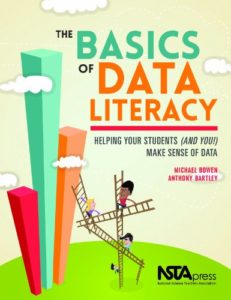Data Literacy
When dat a is properly collected, analyzed and presented it can help us understand complex systems and improve decision making. Conversely, bad data will mislead us and distort our perception of the world around us. Given that we are constantly inundated with data, the ability to critically evaluate arguments based on data is essential. The good news is that you don’t need a degree in statistics to become an informed consumer of data. The Georgia State University Library has several books that deal with the subject of data literacy (i.e, the knowledge of what data is, and an understanding of how it’s collected, analyzed, and presented). The books listed below can help readers learn how to critically evaluate data-related stories on the news, and can help people make day-to-day decisions involving data at work, school and in the marketplace.
a is properly collected, analyzed and presented it can help us understand complex systems and improve decision making. Conversely, bad data will mislead us and distort our perception of the world around us. Given that we are constantly inundated with data, the ability to critically evaluate arguments based on data is essential. The good news is that you don’t need a degree in statistics to become an informed consumer of data. The Georgia State University Library has several books that deal with the subject of data literacy (i.e, the knowledge of what data is, and an understanding of how it’s collected, analyzed, and presented). The books listed below can help readers learn how to critically evaluate data-related stories on the news, and can help people make day-to-day decisions involving data at work, school and in the marketplace.
- Best, Joel. Damned Lies and Statistics: Untangling Numbers from the Media, Politicians, and Activists. (2012)
- Bowen, Michael. The Basics of Data Literacy: Helping your Students (and you!) Make Sense of Data. (2014)
- Davenport, Thomas. Keeping up with the Quants: Your Guide to Understanding and Using Analytics. (2013)
- Foreman, John. Data Smart: Using Data Science to Transform Information into Insight. (2014)
- Paulos, John Allen. Innumeracy: Mathematical Illiteracy and its Consequences. (1988)
- Wheelan, Charles. Naked Statistics: Stripping the Dread from the Data. (2013)